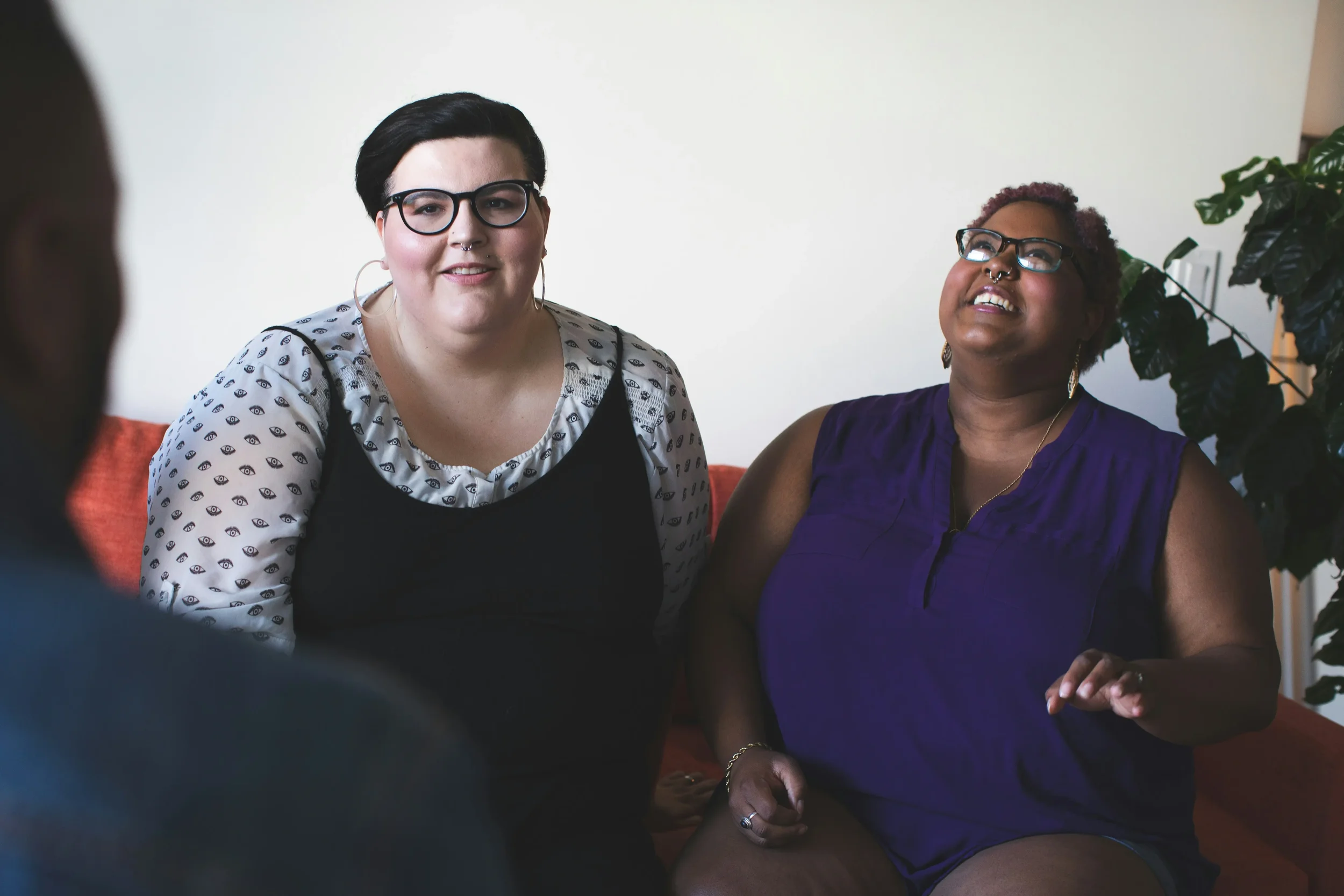Inside a Gottman Couples Therapy Session at the Baltimore Therapy Group
Feeling nervous about couples therapy is normal. Our job is to make the process clear, calm, and doable. The Gottman Method is a structured, skills‑based approach that helps you build friendship, manage conflict, and feel close again. Below is a step‑by‑step look at what your first visits are like at Baltimore Therapy Group—and how the work actually helps.
Quick note on evidence: The Gottman approach sits within a larger field of proven couple therapies. For example, you can read a broad review of evidence‑based treatments for couple distress and an overview of modern couple therapy to learn more about the effectiveness of couples therapy and the Gottman method.
What Is the Gottman Couples Therapy Method?
The Gottman Method teaches practical tools which is framed what researchers call the Sound Relationship House. In plain English, that means: before couples can begin building the “house,” they must establish the load-bearing walls of trust and commitment. The Gottman relationship is a research-based approach to building strong partnerships.
Friendship first. Learn your partner’s inner world (“Love Maps”) and build fondness and admiration. Partners learn to build Love Maps by recalling the intimate details of each other’s lives, including hopes, fears, interests, and daily stresses. The importance of knowledge of your partner's inner world is emphasized as a foundation for lasting connection.
Turn toward connection. Notice small bids for connection (eye contact, a joke, a sigh) and respond to them.
Manage conflict without damage. Use a softened start‑up to raise hard topics gently and practice repair attempts to cool things down.
Grow meaning and trust. Create rituals of connection and shared values.
After building Love Maps, the Gottman Method helps couples develop the ability to communicate effectively, increase positive feelings, and deepen intimacy.
Gottman work is research‑informed and skill‑focused. Studies show that structured, behavior‑based approaches can improve relationship functioning—see this meta‑analytic overview of behavioral couple interventions. And an outcome study of the Gottman Method in clinical practice reports improvements in satisfaction and conflict management. Improvements in marital adjustment and intimacy arise through structured interventions like the Gottman Method. The method has a significant impact on marriage stability and satisfaction. Gottman’s approach is based on over 30 years of research involving more than 3,000 couples.
Step‑by‑Step: What to Expect Here in Baltimore
1) Intake & Relationship Checkup
Before we meet, you’ll complete a brief relationship history and questionnaires. This helps us see your strengths, stressors, and goals. It also reduces "first‑session pressure"—we already have a map of what matters most to you. The process of Gottman therapy typically begins with an assessment that includes a joint session, individual interviews, and questionnaires.
What we look for: patterns in friendship (how you connect), conflict (how you fight), and trust/security.
What you get: a clear plan for where to start.
(Why we do it this way: a structured relationship assessment helps therapy move faster and stay focused.)
2) First Joint Session (Both Partners Together)
We begin with the story of “us.” We’ll set gentle ground rules, name top concerns, and agree on first goals. Expect a calm, collaborative tone. No one is “the problem”—the patterns between you are what we’ll change.
You’ll hear Gottman terms in everyday language (e.g., “Let’s try a softer start‑up for this topic”).
You’ll leave with 1–2 small actions to try at home.
3) Individual Meetings (One‑on‑One)
Each partner meets privately with the therapist. This gives space for context and ensures both voices feel safe and heard. We also check for safety needs and stressors outside the relationship.
(Research has long examined the emotions and physiology inside couples’ conflict. For context, see this study of the psychophysiologic model of marital interaction).
What We Practice (and Why It Works)
In session, you’ll practice small skills that add up:
Bids for Connection: how to notice and respond to everyday reaching‑out.
Repair Attempts: simple phrases and pauses that help you reset mid‑argument.
Softened Start‑Up: a calmer way to begin hard talks so they don’t explode.
A focus on micro moments and healthy interaction patterns is essential, as it helps couples become more mindful and intentional in their daily relationship dynamics.
A key part of Gottman therapy is identifying and neutralizing the “Four Horsemen of the Apocalypse”—communication styles that are destructive to relationships. The method helps couples address conflicts constructively, fostering healthier and more harmonious interactions.
These tools are effective because they change both behavior and emotional tone. Evidence reviews show that building skills like these, through structured methods used in Gottman couples therapy, improves satisfaction and reduces negative cycles. Intervention with the Gottman Method leads to measurable improvements in intimacy and relationship adjustment over time. Couples maintaining a 5:1 ratio of positive to negative interactions is emphasized as crucial for a healthy relationship. Scholars also debate and refine the theory behind Gottman’s early models; for a critical lens on generalizability, see this evaluation of foundational assumptions.
Feedback & Goal‑Setting (All Together)
After your individual meetings, we come back together for a clear, plain‑English summary of what’s going well and what gets you stuck. We translate that into a small set of goals you can see and feel in daily life, such as:
Turn toward more often. Catch and respond to bids for connection during the day.
Use a softer start. Begin hard talks gently to lower defensiveness.
Repair sooner. Pause, take a breath, and try a quick do‑over when tension rises.
Build rituals. Add short, predictable moments that create warmth and trust.
Gottman therapy teaches couples to manage conflict constructively by differentiating between "solvable" problems and "perpetual" ones.
This kind of focused, skill‑based plan is supported by a meta‑analytic review of behavioral couple therapy.
Building Daily Connection (Rituals That Work)
We help you pick simple routines that make closeness easier:
Stress‑reducing conversation (10–15 minutes, no problem‑solving your partner)
Morning or evening check‑ins (“What’s one way I can support you today?”)
Appreciation habit (a daily note or text)
Weekly date‑time (short and planned beats long and rare)
Small, steady actions change the climate of the relationship. As the positive tone grows, conflict gets easier to manage. Reviews of modern couple therapy highlight how everyday rituals and positive interactions build a more resilient bond (integrative overview of contemporary couple therapy). The therapy encourages an atmosphere supportive of each partner’s aspirations, helping to make life dreams come true. These daily rituals also foster hope and help couples support each other's future goals, creating a shared vision for long-term happiness.
Practicing Repair in Session
We rehearse the tough moments together—at a slower speed and with coaching. You’ll practice:
Naming what’s really at stake
Asking for needs directly
Calling a short timeout (and coming back on purpose)
Trying a brief repair phrase (e.g., “Can we rewind? I want to say that better.”)
Addressing hard things is a necessary part of the process; confronting these difficult issues can be messy and agonizingly hard, but it is essential for genuine progress.
We keep it calm, kind, and structured so both partners feel safe enough to try something new.
How We Measure Progress (and Adjust)
You’ll check in about what’s improving between sessions: less escalation, quicker repairs, more ease being on the same team. When needed, we adjust the plan, add a skill, or slow down. Your therapist may use brief relationship scales or simple weekly check‑ins to track change. The pace varies by couple; we’ll talk together about cadence and milestones.
Family Dynamics in Gottman Therapy
So here's the thing about the Gottman Method—it's not just for romantic partners who are struggling. You might think couples therapy when you hear "Gottman," but this powerful approach works wonders for families who want to build healthier, more connected relationships. At its heart, the Gottman Method draws on something called the Sound Relationship House Theory, developed by John and Julie Gottman, to help families understand what actually makes relationships thrive: trust, respect, positive interactions, and emotional intimacy. It's that simple—and that transformative.
Picture this: your family learns practical tools to manage conflict and disarm those verbal battles that seem to erupt between parents, children, and siblings. The Gottman Method focuses on each person's inner world—their feelings, hopes, and beliefs—so families can develop what we call a heightened sense of empathy and understanding. This approach helps remove those invisible barriers to communication and creates space where every family member feels heard and valued. And isn't that what we're all really after?
Here's where it gets interesting: a key part of the Gottman Method is learning to distinguish between solvable problems and perpetual ones. In family dynamics, this means working together to address issues that can actually be resolved through open communication and compromise, while also learning to accept and respect differences that may never fully go away. Therapists guide families in developing healthier conflict resolution skills, so disagreements don't spiral out of control or damage relationships—because let's face it, conflict is inevitable, but damage doesn't have to be.
Building a strong foundation of friendship and respect turns out to be just as important in families as it is in couples. The Gottman Method encourages families to create what we call rituals of connection—like regular family meals, shared activities, or simple check-ins—that foster warmth and trust. Practicing appreciation and active listening helps reinforce positive interactions and supports a more resilient family bond. Think of it as emotional bank deposits that you can draw on when times get tough.
In clinical practice, therapists use the Gottman Method to help families in family therapy identify patterns that may be causing stress or creating distance. Through assessment and skill-building, families learn to communicate more effectively, manage conflict constructively, and increase intimacy. The method is flexible and can be integrated with other therapeutic approaches, making it a valuable resource in counseling centers and family therapy settings. It's not a one-size-fits-all approach—it adapts to what your family actually needs.
Decades of research by John Gottman have shown that the principles of positive interactions, emotional intimacy, and effective communication are essential for healthy relationships—whether between spouses, parents and children, or siblings. By applying these principles, families can create a supportive environment that nurtures mental health, strengthens connections, and helps everyone feel more secure and understood. The data doesn't lie: these strategies work across the board.
Whether you're seeking support for a specific challenge or simply want to build a stronger family dynamic, the Gottman Method offers the right tools and resources to help you move forward. With the guidance of a skilled therapist, families can learn to manage conflict, increase empathy, and create lasting habits that support happiness and well-being for years to come. It's okay—wise, even—to ask for help when you want your family relationships to thrive.
When Gottman May Not Be the First Step
If there is ongoing violence, coercion, or untreated substance use, we pause couples work and create a safety‑first plan. Your therapist will coordinate referrals and supports so that couples work can resume when it’s appropriate.
Ready to Take the Next Step?
If you’re curious about Gottman couples therapy in Baltimore, we’re here to help. Read about our approach and options on our Couples Therapy page, meet our therapists trained in the Gottman Method, or get in touch to schedule a first session or a brief consult. If this is your first time trying Gottman couples therapy, we’ll guide you through what to expect and answer any questions you may have.
You don’t have to have it all figured out before you come in—your first session is for understanding, not for fixing everything at once.
Frequently Asked Questions About Gottman Couples Therapy
What is the Sound Relationship House Theory?
The Sound Relationship House Theory is the foundation of the Gottman Method couples therapy. It describes the essential components of a healthy relationship, including building trust, managing conflict, and increasing emotional intimacy. This theory guides couples to create a strong, supportive partnership by focusing on friendship, respect, and shared meaning.
How does Gottman therapy help disarm conflicting verbal communication?
Gottman therapy teaches couples to recognize and neutralize destructive communication patterns, often called the "Four Horsemen of the Apocalypse." By using techniques such as a softened start-up and repair attempts, couples learn to disarm conflicting verbal communication, reducing defensiveness, contempt, criticism, and stonewalling to foster healthier interactions.
Who are John and Julie Gottman?
John and Julie Gottman are the founders of the Gottman Method couples therapy. They are renowned researchers and clinicians in the field of human relationships, combining over 40 years of clinical practice and scientific research to develop effective tools and interventions that improve mental health and increase intimacy among couples.
Can Gottman couples therapy improve emotional intimacy?
Yes, one of the primary goals of Gottman couples therapy is to increase intimacy by helping couples build a heightened sense of empathy, respect, and understanding. Through practical exercises and counseling, couples learn to remove barriers that hinder closeness and develop deeper emotional connections.
Is Gottman therapy suitable for all couples?
While Gottman therapy offers valuable tools and resources for many couples, it requires hard work and commitment. It is especially effective in family therapy settings and for couples willing to engage in the process. However, in cases involving ongoing violence or untreated mental health issues, other interventions may be necessary before starting Gottman therapy.




